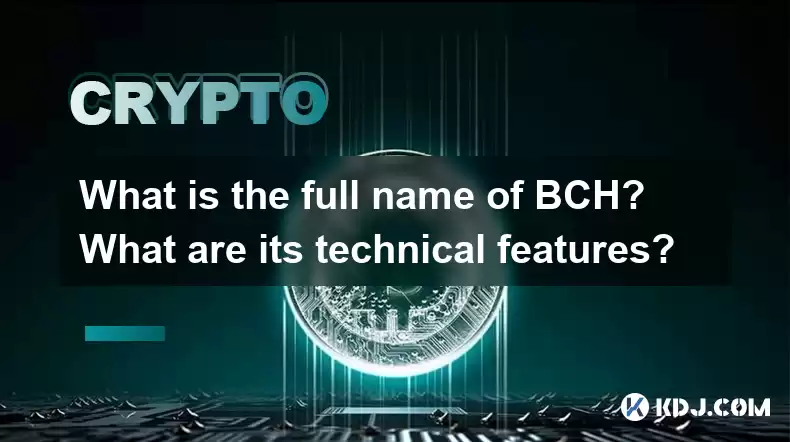-
 Bitcoin
Bitcoin $120300
1.41% -
 Ethereum
Ethereum $4296
2.75% -
 XRP
XRP $3.220
1.46% -
 Tether USDt
Tether USDt $0.9997
-0.04% -
 BNB
BNB $801.6
0.14% -
 Solana
Solana $179.9
0.22% -
 USDC
USDC $0.9998
-0.01% -
 Dogecoin
Dogecoin $0.2302
-0.24% -
 TRON
TRON $0.3405
-0.39% -
 Cardano
Cardano $0.7965
0.53% -
 Hyperliquid
Hyperliquid $44.80
2.57% -
 Chainlink
Chainlink $21.95
2.94% -
 Stellar
Stellar $0.4438
1.68% -
 Sui
Sui $3.767
-1.42% -
 Bitcoin Cash
Bitcoin Cash $584.4
3.24% -
 Hedera
Hedera $0.2554
-0.59% -
 Ethena USDe
Ethena USDe $1.001
-0.02% -
 Avalanche
Avalanche $23.57
0.00% -
 Litecoin
Litecoin $126.6
4.64% -
 Toncoin
Toncoin $3.339
0.94% -
 UNUS SED LEO
UNUS SED LEO $9.001
-0.49% -
 Shiba Inu
Shiba Inu $0.00001320
-0.92% -
 Uniswap
Uniswap $10.84
3.36% -
 Polkadot
Polkadot $3.945
-1.39% -
 Cronos
Cronos $0.1663
4.77% -
 Ethena
Ethena $0.8136
8.48% -
 Dai
Dai $0.0000
0.00% -
 Bitget Token
Bitget Token $4.391
-0.51% -
 Monero
Monero $268.0
0.80% -
 Pepe
Pepe $0.00001169
-1.57%
What is the full name of BCH? What are its technical features?
Bitcoin Cash (BCH) prioritizes faster transactions and lower fees than Bitcoin via larger block sizes and altered consensus mechanisms, though multiple hard forks have created version variations.
Mar 12, 2025 at 07:15 pm

Key Points:
- BCH's full name is Bitcoin Cash.
- Its core technical features focus on increased block size, leading to faster transaction speeds and lower fees compared to Bitcoin. This is achieved through different consensus mechanisms and mining strategies.
- BCH also incorporates features aimed at improving scalability and user experience within the cryptocurrency space. However, it's important to note that BCH has seen several hard forks, resulting in different versions and potential confusion.
What is the full name of BCH?
The full name of BCH is Bitcoin Cash. It originated as a hard fork from the original Bitcoin blockchain in August 2017. This hard fork was primarily driven by disagreements within the Bitcoin community regarding the optimal block size and transaction processing capabilities. Proponents of BCH argued that Bitcoin's then-limited block size was hindering its potential for widespread adoption as a payment system. They believed that increasing the block size would lead to faster transactions and lower fees.
What are its technical features?
Bitcoin Cash's technical features are largely centered around enhancing transaction speed and scalability. The most significant difference compared to Bitcoin is its larger block size. Bitcoin's block size was originally limited to 1 MB, causing congestion and high transaction fees during periods of high network activity. BCH, however, implemented a much larger block size, initially 8 MB and subsequently increased, allowing for more transactions to be processed per block.
This larger block size directly impacts transaction speed and fees. Because more transactions can be included in each block, the time it takes for a transaction to be confirmed is generally shorter, and the fees associated with those transactions are typically lower. This was a key design goal of BCH, aiming to make it a more practical and efficient cryptocurrency for everyday payments.
The consensus mechanism used by BCH is Proof-of-Work (PoW), similar to Bitcoin. However, the mining difficulty adjustment algorithm and the overall mining landscape differ, influencing the mining profitability and network security. Different hashing algorithms and block reward schedules also distinguish BCH from Bitcoin.
Further Exploration of BCH's Technical Aspects:
The increased block size in BCH directly addresses the scalability issues that plagued Bitcoin. A larger block size means more transactions can be confirmed per unit of time, reducing congestion and improving the user experience. This is particularly important for merchants and businesses that process a high volume of transactions. Lower transaction fees are another major advantage. The reduced cost makes BCH a more attractive option for smaller transactions and everyday use.
The mining aspect of BCH is also noteworthy. The different hashing algorithm, mining difficulty adjustment, and block reward schedule compared to Bitcoin have implications for the decentralization of the network and the distribution of mining power. Understanding these nuances is crucial for a comprehensive grasp of BCH's technical functioning.
BCH has undergone several hard forks itself. These forks, while aiming to improve the cryptocurrency, have also led to the creation of various BCH versions (like BCH ABC and BCH SV), causing some confusion and fragmentation within the community. Each fork often implements its own set of technical specifications and changes.
Addressing potential complexities and variations:
The history of BCH is characterized by several hard forks, resulting in different versions and variations of the cryptocurrency. These hard forks often arise from disagreements within the BCH community regarding development direction and future technical improvements. This fragmentation can be confusing for users and investors. Understanding the differences between these various BCH versions is essential to avoid unintended consequences.
Researching the specific technical features of each BCH version is critical before interacting with them. Each version may have its own unique block size, consensus mechanism, or other technical specifications. These variations can affect transaction speeds, fees, and security.
Keeping up to date with the latest developments and announcements within the BCH community is crucial to stay informed about changes and potential forks. This ensures you are aware of any relevant technical modifications that could impact your usage or investment.
Common Questions and Answers:
Q: What is the difference between Bitcoin and Bitcoin Cash?
A: The primary difference lies in their block sizes and resulting transaction speeds and fees. BCH has a significantly larger block size than Bitcoin, leading to faster confirmations and lower costs. Other differences include mining algorithms and community governance structures.
Q: Is Bitcoin Cash a good investment?
A: Whether BCH is a good investment depends on individual risk tolerance and market analysis. Its value is subject to market fluctuations like any other cryptocurrency. Thorough research is essential before making any investment decisions.
Q: How secure is Bitcoin Cash?
A: BCH uses a Proof-of-Work consensus mechanism, similar to Bitcoin, aiming for network security through decentralized mining. However, security is always relative and subject to evolving threats.
Q: How can I buy Bitcoin Cash?
A: BCH can be purchased through various cryptocurrency exchanges. It is crucial to choose a reputable and secure exchange.
Q: What are the potential risks of investing in BCH?
A: The cryptocurrency market is volatile, and BCH is no exception. Price fluctuations, regulatory uncertainty, and security risks are all potential concerns for investors. Furthermore, the history of hard forks introduces complexity and potential for fragmentation.
Disclaimer:info@kdj.com
The information provided is not trading advice. kdj.com does not assume any responsibility for any investments made based on the information provided in this article. Cryptocurrencies are highly volatile and it is highly recommended that you invest with caution after thorough research!
If you believe that the content used on this website infringes your copyright, please contact us immediately (info@kdj.com) and we will delete it promptly.
- DYDX Price Stays Afloat: Navigating Neutral Momentum with Technical Indicators
- 2025-08-11 20:50:12
- Superman Takes Flight: A Deep Dive into the Comic Program and Coin Medals
- 2025-08-11 20:30:12
- JasmyCoin's Bullish Momentum: Riding the Daily Gain Wave
- 2025-08-11 21:10:12
- Shiba Inu's Comeback Trail and the Meme Coin Mania: Can $SHIB Deliver a 12,000x Return?
- 2025-08-11 18:30:11
- Proof of Trust, Transparency, and User Safety: Keeping Crypto Real
- 2025-08-11 18:50:12
- Pudgy Penguins, Bitcoin Penguins, and the $22M Meme Coin Mania: A New York Perspective
- 2025-08-11 17:10:11
Related knowledge

How to purchase Aragon (ANT)?
Aug 09,2025 at 11:56pm
Understanding Aragon (ANT) and Its PurposeAragon (ANT) is a decentralized governance token that powers the Aragon Network, a platform built on the Eth...

Where to trade Band Protocol (BAND)?
Aug 10,2025 at 11:36pm
Understanding the Role of Private Keys in Cryptocurrency WalletsIn the world of cryptocurrency, a private key is one of the most critical components o...

What is the most secure way to buy Ocean Protocol (OCEAN)?
Aug 10,2025 at 01:01pm
Understanding Ocean Protocol (OCEAN) and Its EcosystemOcean Protocol (OCEAN) is a decentralized data exchange platform built on blockchain technology,...

Where can I buy UMA (UMA)?
Aug 07,2025 at 06:42pm
Understanding UMA and Its Role in Decentralized FinanceUMA (Universal Market Access) is an Ethereum-based decentralized finance (DeFi) protocol design...

How to buy Storj (STORJ) tokens?
Aug 09,2025 at 07:28am
Understanding Storj (STORJ) and Its Role in Decentralized StorageStorj is a decentralized cloud storage platform that leverages blockchain technology ...

Where to find the best price for Audius (AUDIO)?
Aug 11,2025 at 04:01pm
Understanding the Basics of Ethereum StakingEthereum staking refers to the process of locking up ETH tokens to support the security and operations of ...

How to purchase Aragon (ANT)?
Aug 09,2025 at 11:56pm
Understanding Aragon (ANT) and Its PurposeAragon (ANT) is a decentralized governance token that powers the Aragon Network, a platform built on the Eth...

Where to trade Band Protocol (BAND)?
Aug 10,2025 at 11:36pm
Understanding the Role of Private Keys in Cryptocurrency WalletsIn the world of cryptocurrency, a private key is one of the most critical components o...

What is the most secure way to buy Ocean Protocol (OCEAN)?
Aug 10,2025 at 01:01pm
Understanding Ocean Protocol (OCEAN) and Its EcosystemOcean Protocol (OCEAN) is a decentralized data exchange platform built on blockchain technology,...

Where can I buy UMA (UMA)?
Aug 07,2025 at 06:42pm
Understanding UMA and Its Role in Decentralized FinanceUMA (Universal Market Access) is an Ethereum-based decentralized finance (DeFi) protocol design...

How to buy Storj (STORJ) tokens?
Aug 09,2025 at 07:28am
Understanding Storj (STORJ) and Its Role in Decentralized StorageStorj is a decentralized cloud storage platform that leverages blockchain technology ...

Where to find the best price for Audius (AUDIO)?
Aug 11,2025 at 04:01pm
Understanding the Basics of Ethereum StakingEthereum staking refers to the process of locking up ETH tokens to support the security and operations of ...
See all articles

























































































